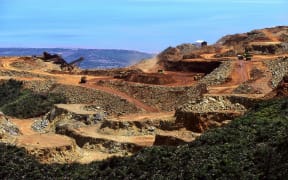Unions in New Caledonia fear that the Vale nickel plant could close within half a year and trigger the biggest wave of job losses the territory has ever seen.
"That's 5,000 employees and that means 10,000 people who need to be fed", a unionist Pascal Pujapujane told New Caledonia's television station after the latest briefing by the Vale leadership.
What sent the alarm bells ringing was the announcement by Vale's new CEO Fabio Schvartsman in Brazil last month that it was reviewing its loss-making operation in New Caledonia.
The timeline for a decision is not clear but reports suggest the Vale board may move as soon as this month.
Returning from Brazil, the head of Vale New Caledonia Daryush Khoshneviss met union representatives who had different interpretations of the message from headquarters.
Vale runs a global network of mines and mining-related businesses which make it the world's top iron producer.
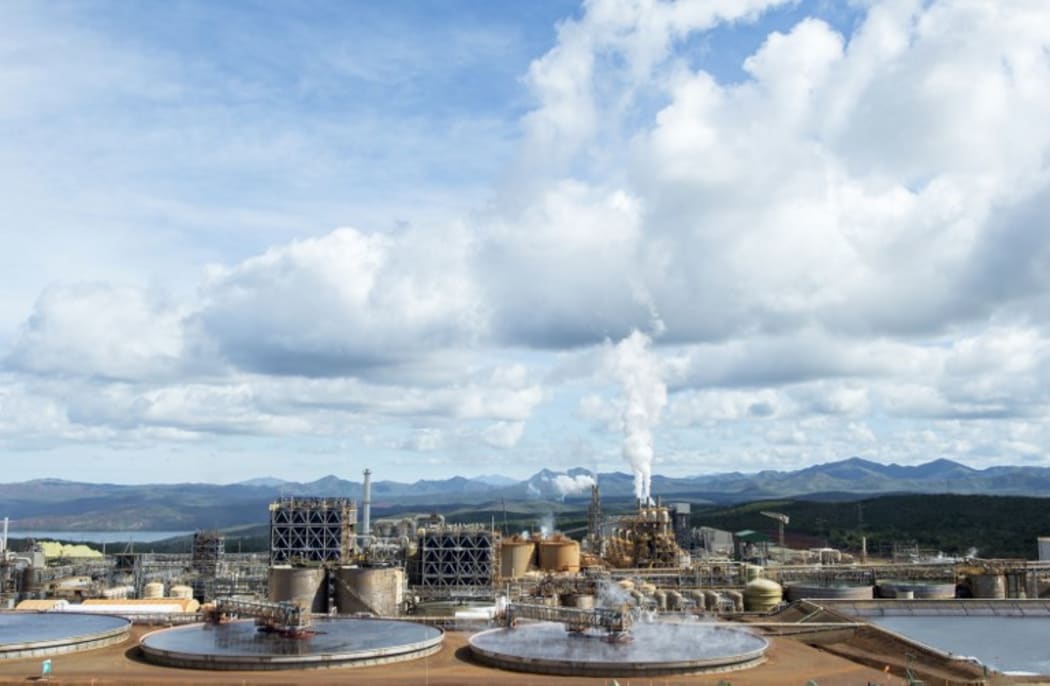
A photo taken on May 27, 2015 shows Brazilian Vale's nickel processing plant of Goro in southern New Caledonia. Photo: AFP PHOTO / FRED PAYET
The word is out that Vale will stop investing in New Caledonia as it seeks to find ways to make the plant profitable.
The Soenc union, which is a major workers' organisation, concluded that the plant's closure is not inevitable.
Last month, the Soenc secretary-general Pierre Tuiteala warned that the plant closing would be a blow to the territory's entire economy with disastrous consequences.
Other unions feel less assured by Mr Khoshneviss. Three of them, including the traditionally militant USTKE, want to take steps as soon as possible to avert lay-offs.
Awaiting nickel price recovery
The nickel price on world markets has dived over the past two years after slumping in the aftermath of the global financial crisis from its 2007 top of $US50,000 a tonne.
It is now just above $US10000 a tonne and the territory's three nickel producers - Vale, SLN and Koniambo - have struggled as it dropped below production costs .
The plant was conceived by Falconbridge, then taken over by another Canadian company Inco before it merged with Vale.
The plant's launch at Goro was dogged by delays and cost overruns. It was also been plagued by industrial accidents which saw acid being spilled into the adjacent lagoon at Prony Bay, a World Heritage site.
The company was also involved in protracted disputes with local Kanak groups and targetted by bouts of vandalism before settling on a way forward.
While waiting for the nickel price to rise, Vale is said to have lost $US1.3 billion in the past three years.
The other nickel companies are also hurting, with SLN in Noumea, a subsidiary of France's Eramet, reportedly losing more than $US20 million a month.
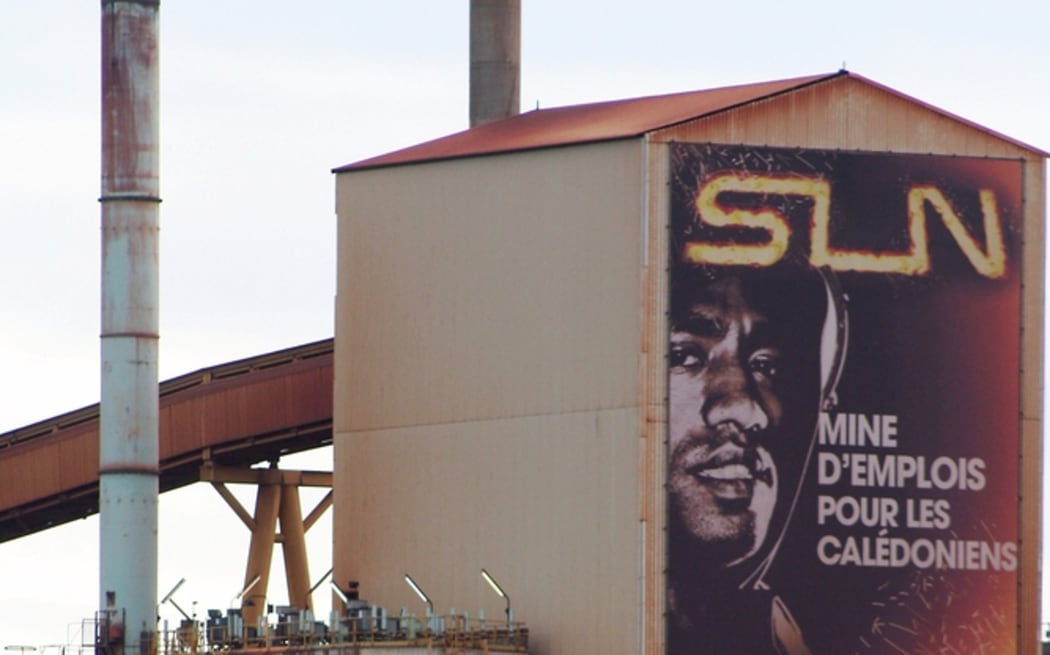
Photo: RNZ / Johnny Blades
Unions prepare for cuts
Experts pondering what Vale might do next have come up with four likely options.
The first is to close the plant, a second is to keep running it but with reduced output, a third option is its sale and a fourth option is a partial sale or partnership.
The three unions making up a new umbrella group say to ensure the plant's survival, concessions have to be considered. They point to Vale's difficulties of late in getting a permit for a storage site which, according to the company, has now been abandoned.
Another unionist Evelyne Serieyssol told a news conference that there are alternatives to lay-offs, pointing to changes in work procedures and technical changes to save costs.
"We have to do something - today the situation is serious and we've got five months to do it. That's very short. We have to stay active, make proposals and stay engaged with management," she said.
There has been no word from the New Caledonian government on whether it has been in touch with Vale.
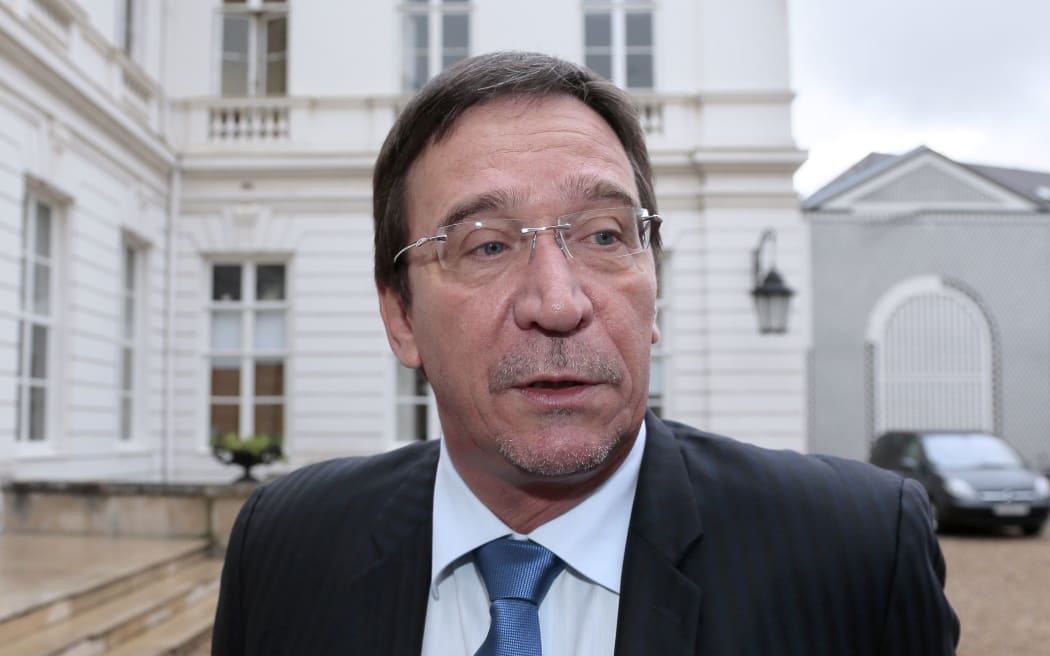
Philippe Gomes Photo: AFP
However, a senior politician Philippe Gomes has asked for a meeting with the head of Vale to avert a possible closure.
Mr Gomes, who represents New Caledonia in the French Senate, disclosed this to reporters in Paris last month after meeting the French prime minister Edouard Philippe.
The new French overseas minister Annick Girardin has also been approached over the concerns about Vale but nothing has been made public of what further action Paris might consider.
The French state has been mindful of the precarious situation in the nickel sector and extended loans to keep the plants going.
Last November, Vale was given a $US200 million which only reduced the risk of Vale closing the plant and didn't elicit a guarantee it would remain operational.
Any closure runs the risk of overwhelming New Caledonia's social security system CAFAT as it would struggle to accommodate thousands of jobless.
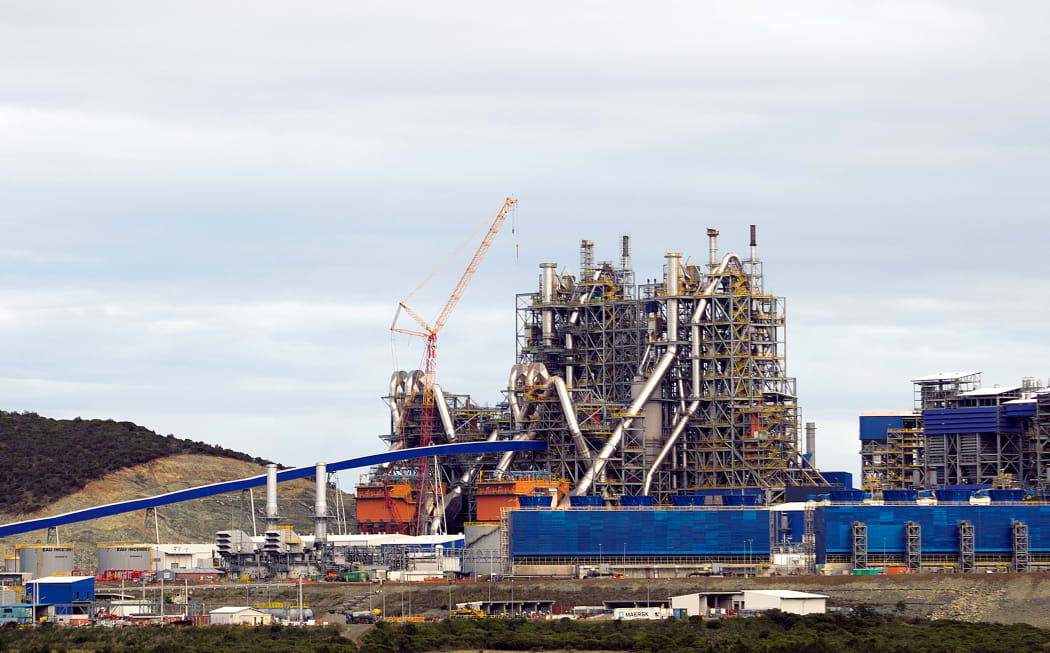
Koniambo nickel plant Photo: AFP
Re-balancing the economy
For more than a century, nickel mining has been the backbone of New Caledonia's economy, creating wealth for miners and the colonial power France.
With the emancipation of the indigenous Kanaks, a driving force of the late 20th century has been the call to share the wealth and that meant to let more of the profits flow into the communities long deprived of the benefits of industrial development.
The 1988 Matignon Accords and then the 1998 Noumea Accords have been the roadmaps to keep sectarian tensions at bay and juggle the aspirations of both the pro- and anti-independence side, both politically and economically.
One of the outcomes of these agreements has been that the mainly Kanak northern province succeeded in getting its own nickel plant in Koniambo.
This was part of a French policy to try to rebalance the territory whose wealth is concentrated in Noumea and the southern province.
The implosion of the nickel price has been a blow to the entire territory and raised questions about its resource-dependent economy in general.
Critics of the industrial policies say the Vale plant should never have been launched. They claim the nickel ore at Prony was given away to multi-nationals by the leaders of the southern province for a fraction of its value just to thwart the push of the north to have its own plant.
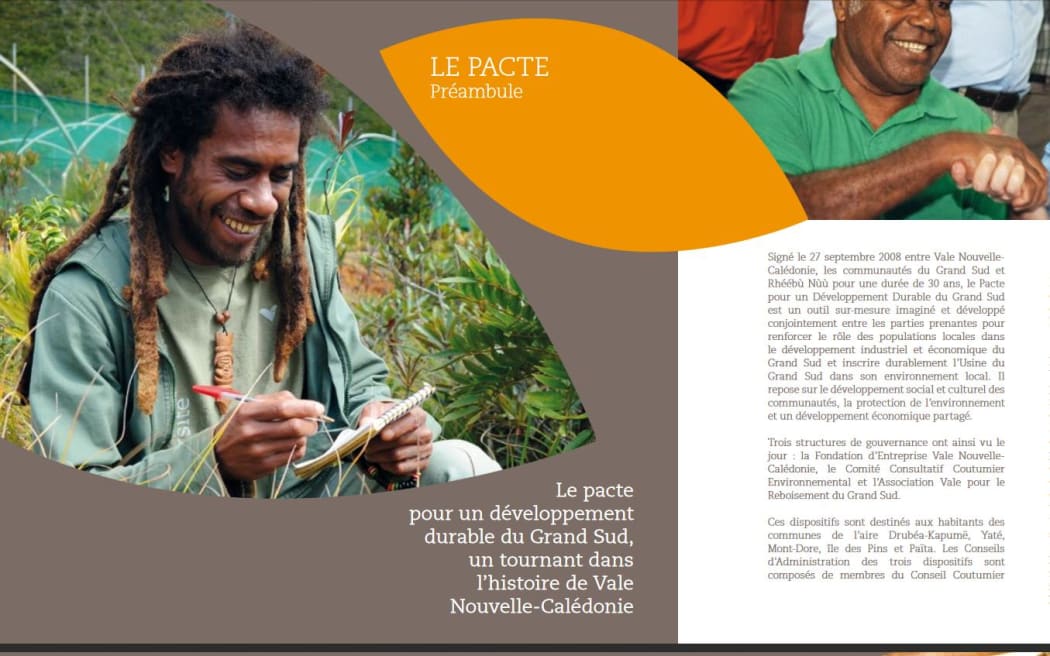
The Brazilian miner Vale strikes a deal with the people of New Caledonia's southern province Photo: Vale.nc website
When Vale and the local communities signed a pact in 2008, Vale said its values were "life above all, value the people, take care of the planet, do what is just, progress together, realise our dreams."
With an independence referendum looming next year, questions about New Caledonia's economic future have regained a new urgency.
For New Caledonia the dependence on nickel, which accounts for practically all its exports, appears to be turning from a boon to a burden, and restructuring has been on the agenda at SLN and Koniambo for those plants to remain viable.
However, with state involvement, their positions are different from Vale which is a commercial venture.
Later this week, unions are due to meet Vale's managers again as options are explored to save jobs.


